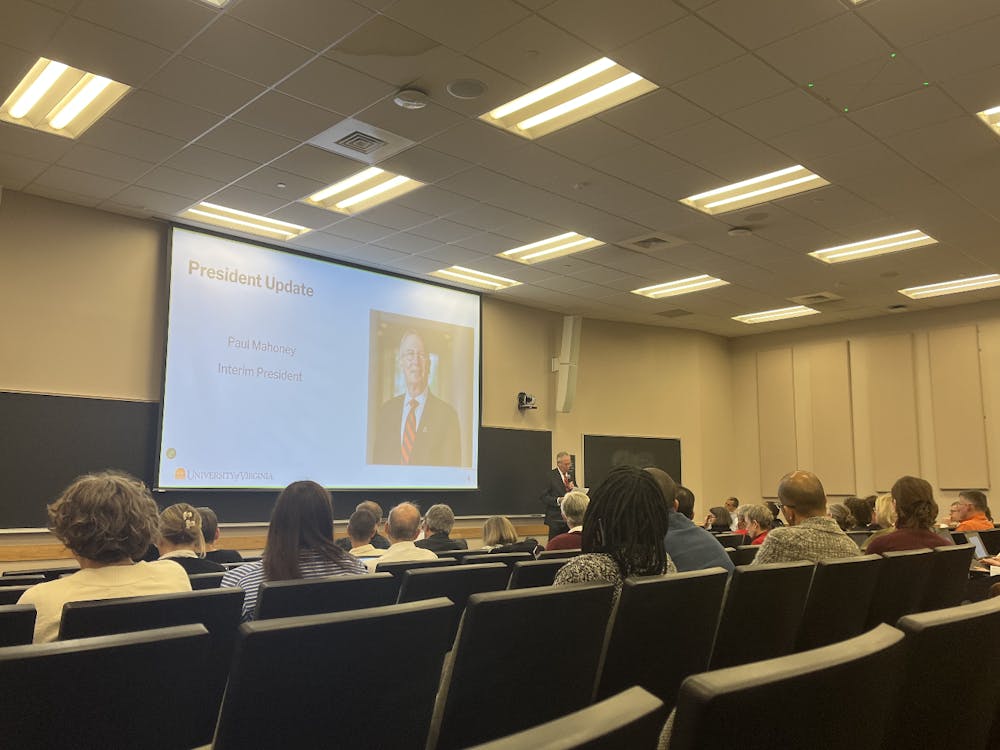Many people may consider the civil rights movement to be a topic discussed in history class; however, History Prof. Julian Bond, NAACP chairman and leader of the 2008 University-sponsored "Civil Rights South" bus tour, holds a very different opinion.
"Most University students are southerners, and whether or not a student is from the South, this movement is an important part of American history," Bond said. "It is important for students to learn about and understand this history."
Bond said the week-long trip taking place at the beginning of March will allow participants to learn from speakers who witnessed the civil rights movement firsthand in the South. The University's School of Continuing and Professional Studies is sponsoring the tour. According to SCPS program director Joan Gore, registration for the year trip, which began Friday, is open to anyone 18 years or older.
"The diversity of this trip could be wonderful," Gore said. "Someone who is 18 and someone who is 80 will have different perspectives on this movement. This tour could be an amazing and emotionally intense learning experience."
Bond explained that the tour will begin in Atlanta where participants will visit sights such as the house where Dr. Martin Luther King, Jr. was born and raised and the Ebenezer Baptist Church, where King and his father were pastors.
According to Bond, after visiting historical sites in Atlanta, the bus will move into Alabama, traveling from Tuskegee to Montgomery, Selma and then to Birmingham, with each city offering an important historical component to the tour.
"Within one state you experience these four cities which almost allow a chronological trip through the civil rights movement of the 1960s," Bond said. "Tuskegee was an important sight for the voting rights movement; in Montgomery there were the bus boycotts; Selma was a flash point for the movement in 1965; and in Birmingham, children became an important part of the movement as had never been seen before."
According to Bond, one of the most powerful aspects of this tour is that it allows participants to meet and learn from some of the most influential figures of the civil rights movement.
"It's one thing to learn about it in class, but when you go on the tour you hear from people who lived during the movement," Bond said. "You hear from attorney Fred Gray, who represented not only Rosa Parks but also Martin Luther King Jr. You hear from Rev. Robert Graetz, a white reverend who supported the bus boycotts. Graetz speaks of his home being bombed for a second time, and when you hear things like that you know you are learning from someone who was in the thick of it."
This is the second tour Bond has led with University sponsors. Last March, Bond led the first tour, which included a similar schedule.
"The real highlight for me was actually the first night of the tour," said Bill Harvey, University chief officer of diversity and equity, who participated last year. "There was a conversation between Julian Bond and John Lewis, who was one of the students who was beaten on the Bloody Sunday march. To sit back and hear them talk about their experiences, it would be impossible to recreate."
Gore said the tour will offer participants the opportunity to experience the civil rights movement in a new way.
"The civil rights movement is not a dry history," Gore said, "This trip exposes you to incredibly brave people who had nothing and who risked death to right a wrong. The people you meet on this trip fought for something they believed in; they were directly involved in the movement; and they have insight into how we can fight the cultural problems of today"






